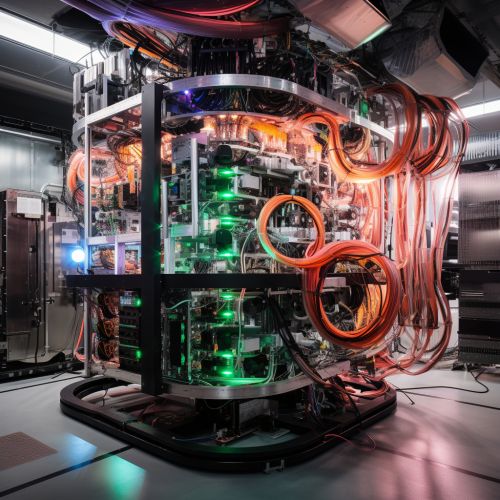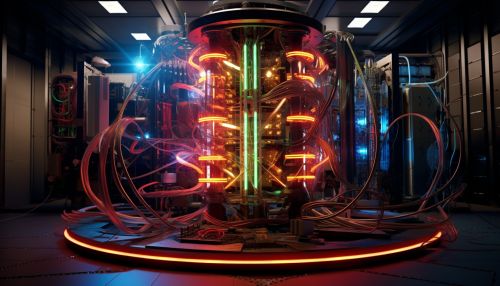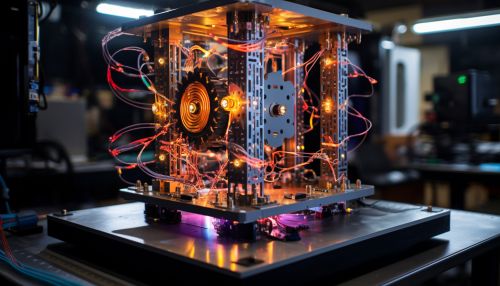Quantum Computing with Quantum Machine Learning Algorithms
Introduction
Quantum computing is a rapidly evolving field that harnesses the principles of quantum mechanics to process information. Unlike classical computers, which use bits as their smallest units of information, quantum computers use quantum bits, or qubits. Qubits can exist in multiple states at once, a property known as superposition, and can be entwined through a phenomenon called quantum entanglement. These properties allow quantum computers to process vast amounts of information simultaneously, potentially solving complex problems much faster than classical computers.


Quantum Machine Learning
Quantum machine learning (QML) is a subfield of quantum computing that combines machine learning algorithms with quantum computing techniques. The goal of QML is to leverage the computational power of quantum computers to improve the efficiency and effectiveness of machine learning algorithms. This includes both supervised and unsupervised learning algorithms, as well as reinforcement learning and deep learning models.
Quantum Algorithms
Quantum algorithms are a set of instructions designed specifically for quantum computers. These algorithms take advantage of quantum properties such as superposition and entanglement to perform computations. Some of the most well-known quantum algorithms include Shor's algorithm for factorizing large numbers, and Grover's algorithm for searching unsorted databases. In the context of QML, quantum algorithms can be used to speed up machine learning tasks, such as training neural networks or clustering data.
Quantum Machine Learning Algorithms
Quantum machine learning algorithms are a new class of algorithms that combine quantum computing techniques with machine learning methods. These algorithms aim to leverage the unique capabilities of quantum computers to improve the performance of machine learning tasks. Some examples of quantum machine learning algorithms include quantum versions of support vector machines, k-means clustering, and principal component analysis.


Applications of Quantum Machine Learning
Quantum machine learning has potential applications in a wide range of fields, including data analysis, pattern recognition, and artificial intelligence. For example, in the field of data analysis, quantum machine learning algorithms could be used to analyze large datasets more efficiently than classical algorithms. In pattern recognition, quantum machine learning could potentially improve the accuracy and speed of image recognition and speech recognition systems. In artificial intelligence, quantum machine learning could be used to develop more powerful AI models.
Challenges and Future Directions
Despite the potential benefits of quantum machine learning, there are several challenges that need to be overcome before it can be widely adopted. These include the current lack of large-scale quantum computers, the difficulty of programming quantum algorithms, and the need for more research into the theoretical foundations of quantum machine learning. However, with ongoing advances in quantum computing technology and research, the future of quantum machine learning looks promising.
